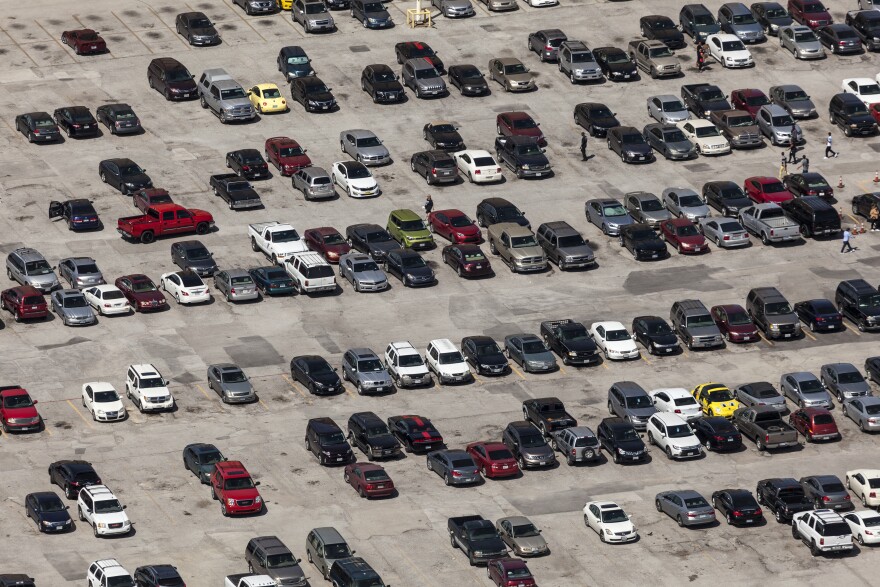Parking reform advocates say Dallas can look to Austin for the benefits of repealing parking mandates, including lower housing costs.
On Tuesday, Austin city planning commissioner Felicity Maxwell spoke to housing and parking reform advocates in Dallas during a conversation hosted by the Dallas Housing Coalition. She shared her city’s story about the positive impacts of repealing parking mandates back in 2023.
“We were really pleased when we got to this big repeal,” Maxwell said. “Because we've taken parking out of the equation, when we talk about housing and housing affordability, our conversations are very different.”
In recent months, Austin has led the country in declining rents as developers build more affordable housing. Maxwell says part of that is due to the end of parking mandates, which freed up developers from building any required number of parking spaces and allows them to build more housing.
Tony Jordan, president of the national Parking Reform Network, said parking minimums in Dallas, like in most major cities, force developers to pay for the high cost of building parking spaces. That leads to an increase in housing prices.
“Dallas should mind its own business when it comes to parking,” Jordan said. “Don't tell entrepreneurs, builders, tenants, you know, resident tenants and landlords how much parking they need to provide.”
Jordan pointed to several of Dallas' “arbitrary” parking requirements per square foot. Current city minimums were passed in the 1960s and slightly updated in the 1980s.
Jordan said Dallas has more than 200 different land uses in the city code, including parking requirements for wax museums, taxidermists and drive-in movie theaters.
“It's kind of the DNA of your city, and they impact it in terrible ways,” Jordan said.
Maxwell said after Austin repealed its parking mandates, the city began to see signs of more small business growth and improved staff efficiency for planners.
The city also saw success with Parking and Transportation Management Districts, where the city collects a revenue stream that can go towards neighborhood improvements.
“All around UT Austin, if you ever walk around there, you see really nice benches, nice lighting, new sidewalks," Maxwell said. "That is all paid by from our parking benefit district in West Campus."
She added repealing mandates also makes room for improved transportation options, including more walkable neighborhoods and public transit.
The conversation comes amid an ongoing debate at Dallas City Hall over parking mandates. The Dallas Housing Coalition plans to show support for a repeal at the City Plan Commission's next meeting on Thursday, Feb. 13.
Jordan said if city leaders decide to repeal parking mandates, Dallas would replace Austin as the largest U.S. city to do so.
“An everyday person will probably tell you ‘I can't find a place to park or parking costs too much,'” Jordan said. “The real parking problem is, for 70 years we have required a bunch of parking in all of our cities across the United States, and that has led to higher costs, more traffic, more pollution, less housing, more sedentary lifestyles, a whole host of problems.”
Pablo Arauz Peña is KERA’s growth and infrastructure reporter. Got a tip? Email Pablo at parauzpena@kera.org. You can follow him on X @pabloaarauz.
KERA News is made possible through the generosity of our members. If you find this reporting valuable, consider making a tax-deductible gift today. Thank you.





